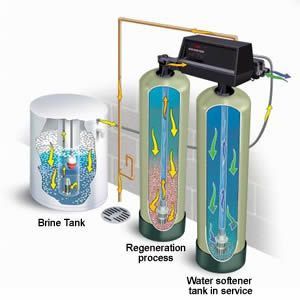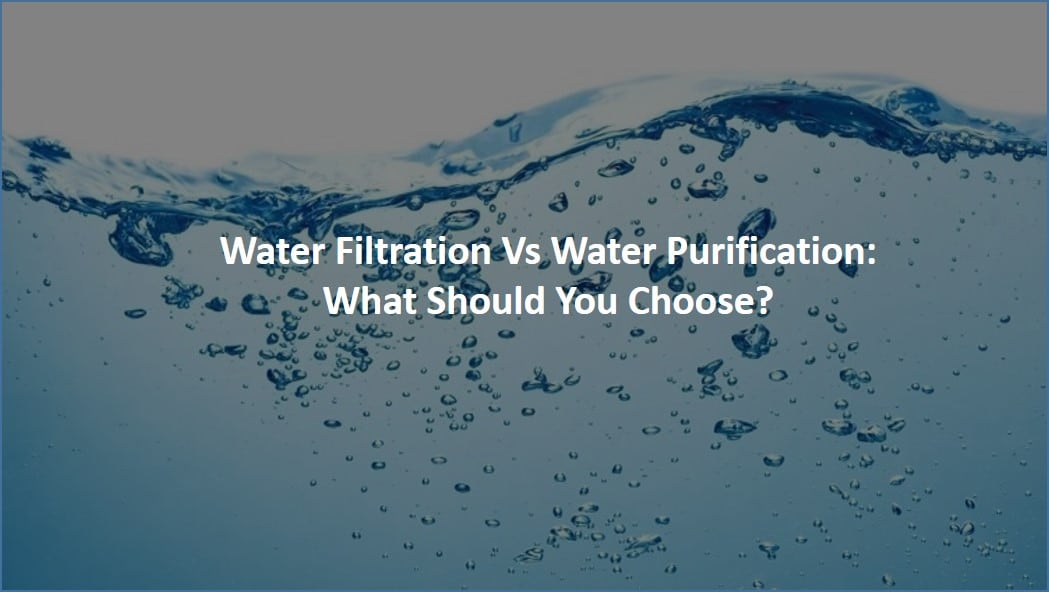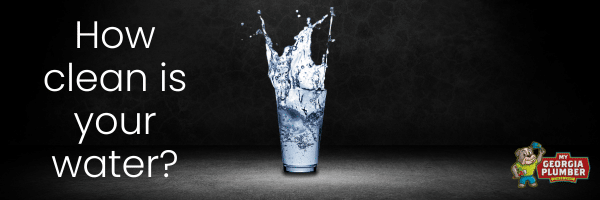
Hard water causes issues in many homes. If you notice water spots on dishes, soap scum in sinks, or scale on your faucets, your home likely has hard water. A water softener can fix these problems, but how do they work?
What Is Hard Water?
Hard water contains minerals like calcium and magnesium. Though harmless to your health, these minerals can damage plumbing and reduce appliance efficiency. Over time, mineral buildup clogs pipes decreases water pressure, and makes cleaning harder.
How Do Water Softeners Work?
Water softeners remove calcium and magnesium using ion exchange. Here’s a quick explanation of the process:
- Water enters the softener: As hard water flows into the softener’s tank, resin beads, coated with sodium ions, attract the hard water minerals.
- Ion exchange occurs: The beads swap the calcium and magnesium in the water for sodium ions. This softens the water by removing the hard minerals.
- Regeneration cycle: The resin beads eventually fill with hardness minerals. The softener flushes a brine solution through the tank, recharging the beads by washing away the calcium and magnesium.
Benefits of Installing a Water Softener
- Protect Plumbing: Hard water causes scale buildup in pipes, which clogs them and reduces water pressure. A softener stops this damage.
- Extend Appliance Life: Water heaters, dishwashers, and other appliances last longer with soft water.
- Cleaner Results: Soft water helps soap lather more easily, leading to cleaner dishes, clothes, and skin.
Things to Consider
Before installing a water softener, consider these points:
- Salt vs. Salt-Free Systems: Most softeners use salt for regeneration. If you’re worried about sodium, consider a salt-free or potassium-based system.
- Regular Maintenance: Keep your system working by refilling the salt or potassium regularly.
- Local Regulations: Some areas limit water softener use due to environmental concerns. Check with local authorities before installing one.
If hard water is a problem in your home, a water softener can be an excellent investment. Not only will it enhance the lifespan of your appliances and plumbing, but it will also improve your overall water quality. Before choosing a system, consult with a professional to ensure the best fit for your home and water conditions.
Water Filter Vs. Water Purifier: Understanding the Difference
Is water filtration the same as water purification? If you’re new to the world of water treatment, this question might leave you puzzled. In this article, we’ll clarify the distinctions between water filters and water purifiers, empowering you to make an informed choice for clean, safe water. Let’s get started! Why Filter or Purify Your...Continue reading→
Why You Need a Water Filtration System
The Importance of a Water Filtration System near Atlanta Water, an essential element of life, is often taken for granted. However, the quality of water in your home significantly impacts your health and daily living. Installing a whole-house water filtration system is not just a choice; it’s a necessity. Let’s explore the compelling reasons why...Continue reading→
The Transformative Benefits of Halo Water Filters
What Are HALO Water Filters? HALO water filters are advanced, whole-house water filtration systems designed to remove impurities and provide clean, soft water throughout your home. These filters help eliminate common water problems like chlorine, heavy metals, and hard water minerals that can damage plumbing and appliances. Key Benefits of HALO Water Filters Cleaner, Safer...Continue reading→













